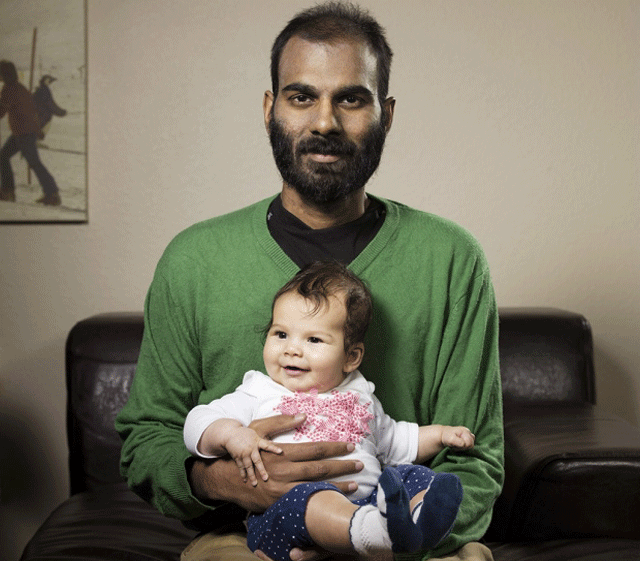He looked at countless CT scans that were a snapshot of a grim fate: there would be no hope for the patient. But this time around, Dr. Paul Kalanithi was looking at his own fatal diagnosis – the neurosurgeon had cancer.

Kalanithi, a Stanford University neurosurgeon, touched many lives in his medical career, but it was his candid writing about life and death once he learned he was terminally ill that resonated with readers from around the world.
Kalanithi died on March 9 of lung cancer, the university said in a statement. He was 37 years old and never smoked.
READ MORE: Majority of Canadians support assisted dying
“The diagnosis was immediate: Masses matting the lungs and deforming the spine. Cancer,” he wrote in a brutally honest New York Times essay about being on the receiving end of a poor prognosis.
“I had reviewed hundreds of scans for fellow doctors to see if surgery offered any hope. I’d scribble in the chart ‘Widely metastatic disease – no role for surgery,’ and move on. But this scan was different: It was my own.”
Kalanithi was in his sixth year of his medical school residency when his weight dropped drastically. He had night sweats, unbearable back pain and a nagging cough. It was in May 2013 that he learned he had stage-4, non-small-cell, EGFR-positive lung cancer.
Kalanithi went through chemotherapy, drug therapy and a lengthy hospitalization. He came out with thin limbs, no hair and a cane. He was bedridden and unable to work. His day would centre around a single task: a doctor’s appointment, or a family visit. The rest of the hours were devoted to rest.

Get weekly health news
READ MORE: A 29-year-old U.S. woman diagnosed with terminal brain cancer plans to end her life on Nov. 1
“With little to distinguish one day from the next, time began to feel static. In English, we use the word time in different ways, ‘the time is 2:45’ versus ‘I’m going through a tough time.’ Time began to feel less like a ticking clock and more like a state of being,” he wrote.
But just days after he was released from hospital, Kalanithi became a father. He had a message for his baby daughter, Cady, too:
“There is perhaps only one thing to say to this infant, who is all future, overlapping briefly with me, whose life, barring the improbable, is all but past,” he wrote in a Stanford Medicine piece.
“That message is simple: When you come to one of the many moments in life when you must give an account of yourself, provide a ledger of what you have been, and done, and meant to the world, do not, I pray, discount that you filled a dying man’s days with a sated joy, a joy unknown to me in all my prior years, a joy that does not hunger for more and more, but rests, satisfied. In this time, right now, that is an enormous thing.”
READ MORE: SARS doctor Donald Low urges Canadians to legalize assisted suicide in posthumous message
The university says that Kalanithi’s reach extended globally after he penned essays for the Times, the Paris Review and Stanford Medicine while taking on interviews with the media and in public forums. Stanford says readers – from young people who had lost parents, to seniors grappling with their own mortality – wrote to him.
Kalanithi said he received at least a daily email from someone with heart disease, depression or another medical illness. Readers conceded that his brutal honesty with understanding his own imminent death helped them find clarity in their own situations.
Some of his writings have even been used in medical school curriculum.
“I began to realize that coming face to face with my own mortality, in a sense, had changed both nothing and everything. Before my cancer was diagnosed, I knew that someday I would die, but I didn’t know when,” Kalanithi wrote.
“After the diagnosis, I knew that someday I would die, but I didn’t know when. But now I knew it acutely. The problem wasn’t really a scientific one. The fact of death is unsettling. Yet there is no other way to live,” he said.
carmen.chai@globalnews.ca
Follow @Carmen_Chai








Comments